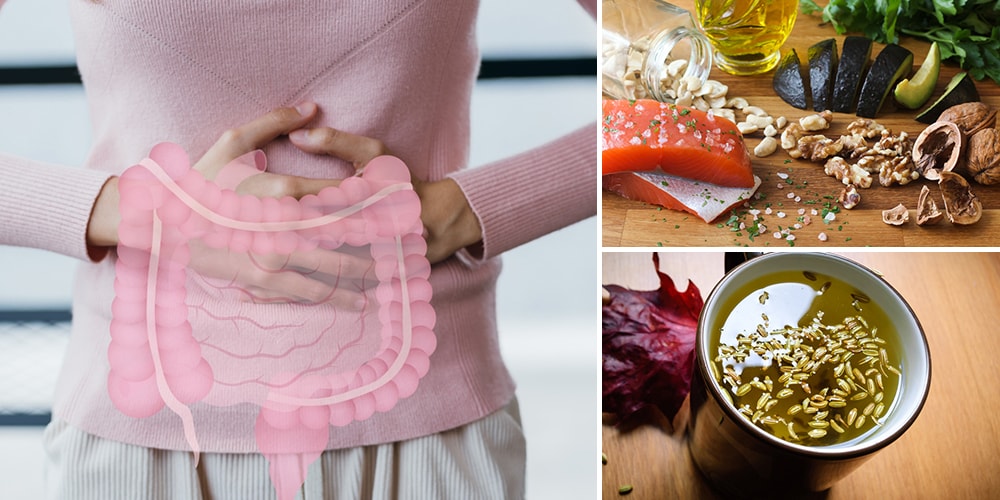
This Is How You Starve the Bad Bacteria from Your Gut
Trillions of microbes like bacteria thrive in the human gut making up the gut microbiome. The microbes include both good and bad ones which co-exist in a symbiotic relationship. These microbes play an important role in human health such as supplying nutrients, aiding in digestion, synthesizing vitamins and promoting cell and nerve functions. But bad bacteria also exists. We will learn how to starve bad gut bacteria and learn other things that are really important.
Gut Bacteria Imbalance

Several factors, including diet, stress, antibiotics, and genetics, can disrupt the balance of gut bacteria. When harmful bacteria multiply unchecked, they interfere with digestion, leading to issues like diarrhea, constipation, abdominal pain, and bloating.
An imbalanced gut microbiome can also impact overall health, causing fatigue, sleep disturbances, weight fluctuations, skin irritations, and even autoimmune issues. To prevent harmful bacteria from overgrowing, experts recommend “starving” them by eliminating certain foods that fuel their growth.
Ways of Starving Bad Gut Bacteria
Stay Away from Processed Foods and Sugar
Too much sugar and artificial ingredients eliminate healthy gut bacteria which gives way to pathogens to multiply. These foods also trigger inflammation which can create bigger health problems such as obesity. Avoiding these types of food, especially the ultra-processed ones, will starve gut bacteria that cause many debilitating health issues.
Identify and Eliminate Food Intolerances
If you have food allergies or intolerances, your gut microbiome differs slightly from others. A food allergy triggers an immune system response, causing it to attack the allergen and release histamine. In contrast, food intolerance occurs when the gut struggles to break down a specific food.
Eating foods that trigger allergies or intolerances can disrupt the gut microbiome, leading to digestive issues and discomfort. Identifying and avoiding these triggers can help maintain a healthier digestive system.
Eat Anti-Inflammatory Foods
Acute and chronic inflammation aren’t infections but rather the immune system’s response to irritants. When the body encounters toxic chemicals or pathogens, it activates inflammatory cells to fight them off. Certain foods, like refined alcohol, sugars, low-fiber meals, and highly processed carbohydrates, are known to trigger this immune reaction and contribute to inflammation.
Eating anti-inflammatory foods helps counter these effects and supports the healing process. These foods strengthen the intestinal lining and regulate the immune response, reducing inflammation. You can find these benefits in high-fiber foods such as berries, leafy greens, cruciferous vegetables, fatty fish, and whole grains. Other powerful anti-inflammatory options include turmeric, avocado, olive oil, grapes, and green tea.
If you have trouble with anti-inflammatory foods, you can always try drinks. For instance, beetroot tea is very effective. And you can also consider willow bark bath salts.
Exercise Regularly
Food alone isn’t the only factor in improving gut health—regular exercise also plays a crucial role, especially for those dealing with chronic digestive issues. A sedentary lifestyle can lower energy levels, slow digestion, and disrupt the balance of gut bacteria, leading to discomfort and poor overall health.
Staying physically active increases oxygen circulation and raises core body temperature, creating an environment where beneficial gut bacteria can thrive while harmful bacteria struggle to survive. Activities like walking, swimming, cycling, and jogging are excellent ways to support gut health. Committing to consistent movement helps fuel a balanced and thriving gut microbiome.
Have a Balanced Diet
Fiber-rich foods play a vital role in supporting gut health, and the best way to maximize their benefits is by incorporating a diverse range of fruits and vegetables into your diet. Eating a variety ensures your body receives essential nutrients, not just for reducing inflammation but for overall wellness. A well-balanced intake of fiber also promotes regular digestion, prevents constipation, and nurtures beneficial gut bacteria.
Most organic, whole foods naturally protect the gut by creating an environment where good bacteria thrive while starving out harmful gut bacteria. Foods rich in prebiotic fiber—such as leafy greens, berries, legumes, and root vegetables—help strengthen the intestinal lining and support a balanced microbiome. By prioritizing fiber-packed, nutrient-dense foods, you can improve digestion, reduce inflammation, and build a healthier gut from the inside out.
Take Probiotics
Probiotic foods like yogurt, pickles, tempeh, sauerkraut, and other fermented food and drinks are best when it comes to gut support and increasing beneficial bacteria. Probiotics are live microorganisms consumed for promoting overall health.
Taking probiotics encourages a healthy gut microbiome where good bacteria will prosper. When these friendly microbes thrive, they prevent the bad microbes from proliferating. In other words, the good guys will take care of the bad ones and promote better digestive health.
⇒ How To Make an Elderflower Probiotic (Video)
Get Some Sleep and Manage Stress
Lack of sleep is linked to many diseases like heart problems, diabetes, obesity and gastrointestinal issues. It also increases stress creating poor conditions for the gut flora. Getting enough rest and sleep can turn it around as the body will have time to repair and rebuild tissues. It strengthens the digestive system and provides a conducive condition for growing good gut bacteria.
Use Herbal Remedies
Herbs and spices exist not only to bring flavor to food. They are also rich in compounds that do amazing work in homeopathic treatments. The best thing is, there is a wide range of herbs you can use for improving digestive health. And, they are also readily available since many of them are almost pantry staples.
Here are a few wondrous herbs that can cure inflammation, starve bad gut bacteria and diversify the gut microflora.
Ginger
Ginger (Zingiber officinale) is a versatile spice used for many kinds of ailments. This rhizome is gut-supportive and anti-inflammatory. It treats nausea, dyspepsia, bloating, gastrointestinal motility and an array of related disorders. Ginger modulates the gut microbiota composition and enables the recovery of good bacteria to starve out the bad.
To get the most out of ginger, simply chew and swallow fresh ginger or prepare tea out of it. Just boil 2 to 3 slices of ginger root in a cup of water for 10 minutes and take it twice a day.
Turmeric
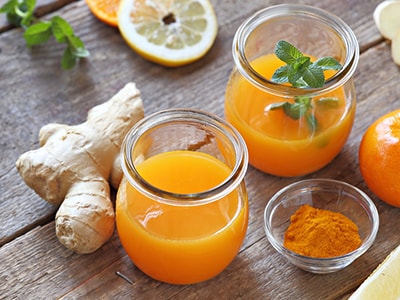
Like ginger, turmeric (Curcuma longa) is also packed with healing properties. It is a super effective antibacterial, antiviral and anti-inflammatory spice with a prebiotic potential. It can positively change the gut microflora composition and support overall health and well-being.
To support good digestive health, try this potent recipe:
Mix until well-combined: 2 tbsp turmeric, 1 tbsp ginger, 1 tbsp cinnamon powder and 1 tsp black pepper. To use, take ¼ tsp of mixture and add it to a small cup of water or tea.
Alternatively, try the gut healing turmeric bites.
Cinnamon
Cinnamon (Cinnamomum cassia) is a warming spice used in many pastries and confectionaries. Its bark or powder have a notable contribution to treating food poisoning. Cinnamon is notorious against bad gut bacteria including E.coli which causes food poisoning. Taking half a quarter tsp of cinnamon powder with a glass of plant-based milk provides immediate digestive relief.
Fennel
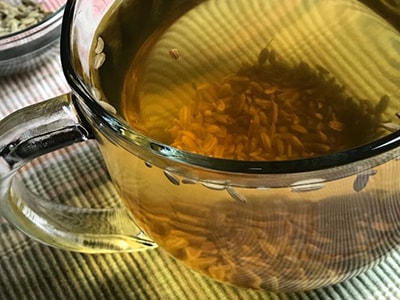
Fennel (Foeniculum vulgare) is one of the handy herbs mothers use for treating colic in children. Its action is beneficial in treating many stomach ailments. It specifically targets bacteria that cause gas and it reduces inflammations in the bowel. Fennel feeds good stomach bacteria to help them bloom and dispel bad gut bacteria.
To effectively bring gut bacteria balance, take fennel water which is made by soaking 2 tbsp fennel seeds in a liter of water. Let the seeds soak overnight and drink the water in the morning. Start with a glass and gradually increase it to 2- 3 glasses a day.
Cardamom
Cardamom (Elettaria cardamomum) is an effective herb for the treatment of abdominal diseases. It helps with indigestion, acid reflux and other digestive disorders. Cardamom works against stress and flushes away toxins from the body as it improves blood circulation. It also stimulates the production of bile for better digestion and improved metabolic activities.
To improve your gut health, boil a few seeds of cardamom or its pounded pods for 10 minutes. Drink it lukewarm twice daily to curb digestive problems.
Bonus: Try Gut-Healing Dandelion Soda
Takeaway
Maintaining a healthy balance of microorganisms in the gut is not only about eating the right food. Your overall health and activity also affect how well your digestive system is working. Gut microbiome imbalance can lead to debilities, but you can still act on it before it gets worse. You need to always think about how to starve bad gut bacteria.
Lifestyle changes, healthy food intake and proper care for your body can do so much in supporting a balanced gut microflora. Above all, good hydration is also necessary to keep your digestive system healthy.

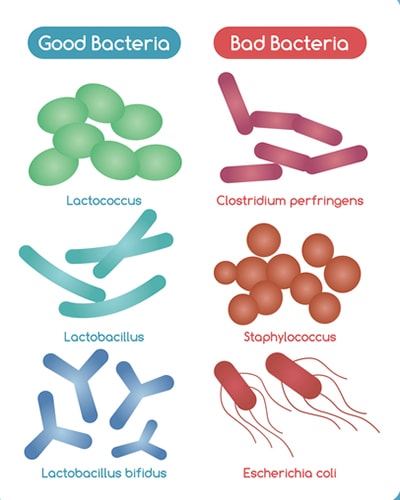
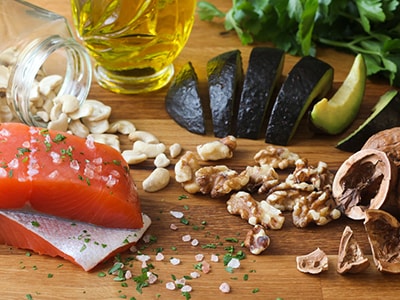

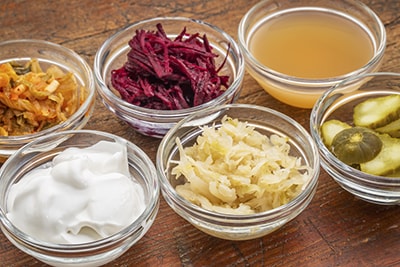
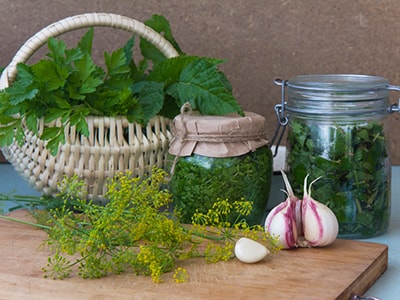
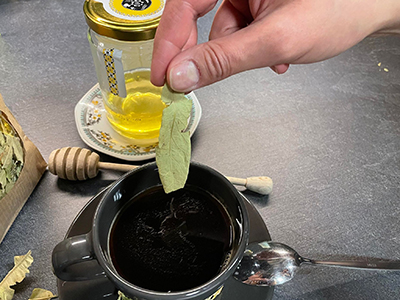

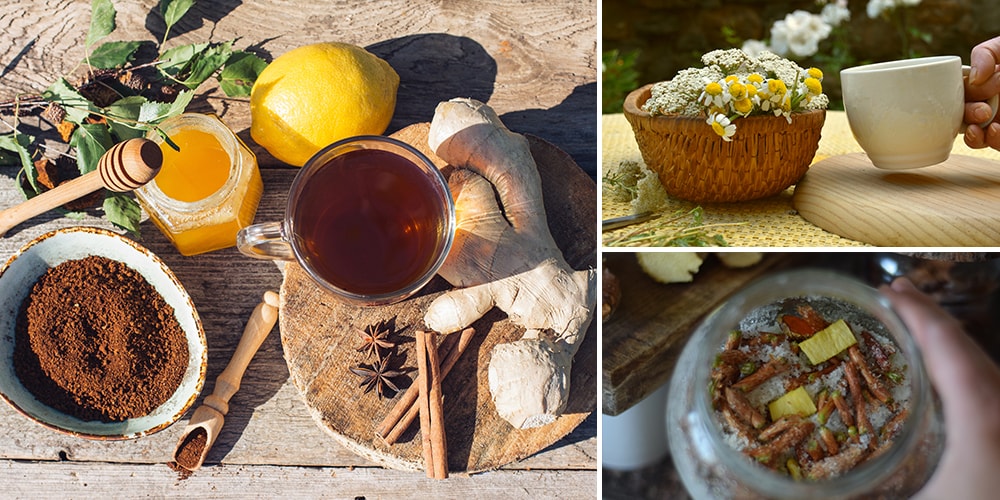
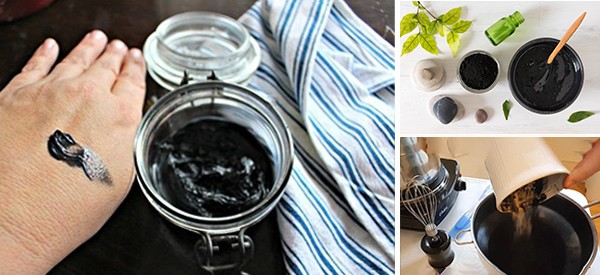
What an incredible, helpful article! Definitely going to share this with others! I LOVE the information I receive from The Lost Herbs!
Hi Jo,
Thank you so much for your kind words! We’re happy to hear you enjoy our articles and newsletters.
Many blessings and good health!
Where do you say how to make elderflower probiotic? The link didnt lead to that.
Hi Penny,
You can find the recipe in The Forager’s Guide to Wild Foods: https://foragersguide.com/
Many blessings and good health!
Love this video. It is presented in a very understandable fashion.
I would like to make a suggestion. Some of the terminology is not familiar to me. Would it be possible to ad a hyperlink to a glossary for quick reference?
Great article. Thank you
This is great information. Thank you for sharing it. Anna
Use an herb called fireweed. and the mucilage in fireweed is actually a suppressant of bad bacteria and encourages good bacteria; plus it lowers Escherichia Coli in the lower bowel thus it is a Superbug scavenger preventing such as MRSA infections; the herb flowers and leaf collected during the spring prior to cottony seed production during summer and fall. The herb according to research articles I found on PUBMEDhas four anti-inflammatory compounds, a jelly can be made from the flowers to make an anti=inflammatory jelly to eat on toast or be taken straight with out the toast which is a causer of inflammatory compounds in the first place . hahaha; a tannin that blocks elastase formation; and an anti-viral and anticancer oxygen-free radical scavenger stimulator known as Oeinethin B if I am spelling it correctly, One can mix the flowers with berries to make pemmican as the mucilage mentioned acts as the glue to keep the berries in pemmican form berries cakes of the Plains Native Americans the Blackfeet. I see this plant as a casual fountain of youth given its powerful properties. This is all from memory. I use the tea or hot water extract form consistently and am rarely ill and if I catch an occasional cold the duration of said illness is very short.
Hi George,
Thank you so much for sharing this! We really appreciate you taking the time to write this helpful information about Fireweed.
Many blessings and good health!
A very helpful article! I love the detailed befits as well as how to use them! Perfect!
Remedy foe yeast infection